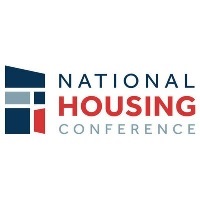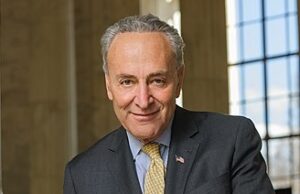Changing veteran population requires resources tailored to meet their full range of housing needs
WASHINGTON – July 14, 2015 – (RealEstateRama) — One size does not fit all when it comes to housing and supportive services for America’s veterans. A new report released today by the National Housing Conference’s Center for Housing Policy details how the changing veteran population requires changes in the housing options and supportive services made available to them after they return to civilian life.

Housing and Services Needs of our Changing Veteran Population examines the services currently available and offers policy recommendations to better serve three distinct veteran populations: older adult veterans, female veterans and post-9/11 veterans. While there are veteran housing and service programs currently available, the report finds that with the changing demographics of the veteran population, there is a need to look critically at these programs and find ways to enhance and improve them so that they better meet evolving needs.
“We often think too generally about veterans’ housing and other needs,” said Dr. Lisa Sturtevant, director of the Center for Housing Policy and coauthor of the report. “There is no “one size fits all” approach to serving the veteran population. The services that an older adult veteran requires may be very different from what female veteran with small children needs. It is important for policymakers, housers and service providers to understand the changing veteran population and to expand housing options and services to meet the varied needs.”
Older adult veterans
In 2013, nearly two-thirds of the veteran population consisted of older adults aged 55 or older. Many face physical limitations and increased health problems as they age, with 35 percent of veterans in this subgroup reporting some sort of service-related disability. Additionally, roughly 24 percent of households headed by a veteran aged 55 or older spend more than one third of their income on housing costs, leaving little for other expenses.
The report finds that traditional affordable housing programs are not always sufficient to address the complex needs of older adult veterans. However, there are some promising examples of service enriched housing for older veterans. The Armed Forces Retirement Home in Washington, DC and Oasis at Scholars Landing in Atlanta, are both designed specifically for older adult veterans in order to target the housing and health needs of older adult veterans.
Female veterans
With the female veteran population at 2.3 million and growing, more housing options are needed that address the needs of women and their families in times of transition. Many female veterans face disproportionate economic insecurity and housing challenges compared to male veterans when returning from service due, in some cases, to service-related sexual harassment, assault and PTSD. Family status plays a significant role in determining what housing options are available to female veterans, as single mothers are more likely to face housing affordability and access challenges than other veteran subgroups. Many transitional housing programs cannot accommodate children.
Programs like ADVANCE Women’s Program, addressing the unique needs of homeless female veterans and their children, help residents move to independent housing over a two-year period by offering intensive services and treating the effects of military sexual trauma. Permanent supportive housing accommodating families and shared living environments also offering promising opportunities for recovery and stability.
Post-9/11 veterans
Because of their recent service period, many post-9/11 veterans struggle to transition to civilian life and are faced with the challenge of rising housing costs, as mid-level civilian jobs have been difficult to obtain during the recent recession and weak economic recovery.
“Housing is unaffordable to typical post-9/11 veterans in many metro areas across the country,” said Janet Viveiros, a senior research associate and co-author of the report. “Many find it difficult to secure civilian employment in such a tight job market, and this economic instability makes it difficult to afford decent housing. Programs that connect post-9/11 veterans to employment and financial management services can be a great asset in helping them achieve future financial and housing stability.”
Read the report, including federal and local policy recommendations, here: http://www.nhc.org/VeteransHousingReport_final.pdf
###
About the National Housing Conference
The National Housing Conference represents a diverse membership of housing stakeholders including tenant advocates, mortgage bankers, nonprofit and for-profit home builders, property managers, policy practitioners, Realtors®, equity investors, and more, all of whom share a commitment to safe, decent and affordable housing for all in America. We are the nation’s oldest housing advocacy organization, dedicated to the affordable housing mission since our founding in 1931. We are a nonpartisan, 501(c)3 nonprofit that brings together our broad-based membership to advocate on housing issues. Learn more at www.nhc.org.
Contact:
Radiah Shabazz
202.466.2121 (ext. 240)













